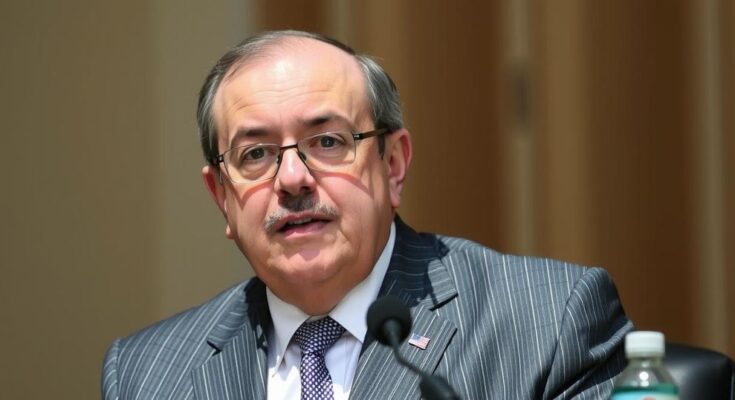Nawaf Salam has been designated as Lebanon’s prime minister, promising to “rescue, reform, and rebuild” the country amid its ongoing crises. He aims to unite the politically fragmented nation by extending cooperation to various factions, including Hezbollah, and pledges to strengthen state authority and work towards economic recovery. However, political complexities may delay the formation of a new government.
Nawaf Salam, Lebanon’s prime minister-designate, has committed to addressing the multifaceted crises facing the nation, emphasizing his goal to “rescue, reform, and rebuild” the country. In his initial address, Salam conveyed his willingness to collaborate across Lebanon’s political landscape, notably to the Hezbollah faction that had opposed his appointment. Securing support from over half of the parliament, he asserted his intent to initiate a new chapter in Lebanese politics, advocating for unity instead of division.
Salam asserted his determination to strengthen the authority of the Lebanese state throughout its entirety and to ensure implementation of UN Resolution 1701, which necessitates Hezbollah’s withdrawal from southern Lebanon. He voiced a strong stance against Israeli occupation, promising to facilitate the complete withdrawal of Israeli forces from all occupied territories. Amid Lebanon’s ongoing financial turmoil, he aims to construct a modern, productive economy through the establishment of an effective government.
However, Salam’s appointment does not guarantee the immediate formation of a new cabinet due to Lebanon’s notorious political intricacies, which often result in prolonged negotiations. Nevertheless, his designation brings a glimmer of hope, particularly following a recent conflict with Israel that caused extensive casualties and destruction.
Lebanon is currently enduring its most severe financial crisis, exacerbated by a history of political instability and division among its various factions. Nawaf Salam’s recent appointment as prime minister comes at a critical juncture, as the nation seeks strong leadership capable of unifying its fragmented political landscape. Lebanon’s challenges are compounded by Hezbollah’s changing power dynamics following the recent conflict with Israel and geopolitical shifts in the region. The context of Salam’s appointment reflects broader struggles within Lebanese society as it grapples with the aftermath of a protracted war with Israel, which has left thousands dead or displaced and further destabilized the region. The new prime minister’s call for reform and cooperation signals an understanding of the urgency needed to restore stability in a country that has historically been plagued by sectarian conflicts and governance issues.
In summary, Nawaf Salam’s ascension as Lebanon’s prime minister signals an intent to foster national unity and address pressing crises through reform and economic revitalization. His outreach to various political factions, including Hezbollah, and his firm commitments to uphold Lebanese sovereignty and implement international resolutions highlight his approach to governance. Yet, the intricate political environment may pose significant challenges to realizing these objectives, underscoring the need for collaboration amid longstanding divisions.
Original Source: www.aljazeera.com




